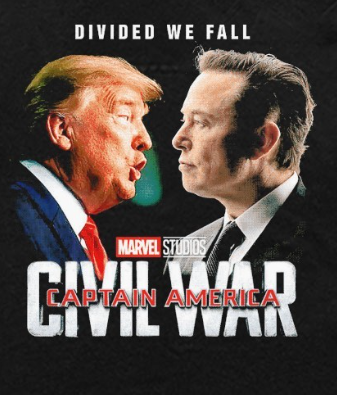News
What Caused the Sudden Breakdown Between Elon Musk and Donald Trump?
A Public Feud Unfolds
A no-holds-barred and very public fallout between the world’s richest man and the president of the United States has gripped social media, with both Elon Musk and Donald Trump trading serious accusations.
While Musk has since deleted some of his most inflammatory posts, Trump has not backed down. The president warned Musk of “very serious consequences” if he supports Democrats in the 2026 mid-term elections.
At the heart of the dispute is Trump’s “One Big Beautiful Bill” (OBBB), a proposal for sweeping tax cuts projected to increase the national debt by around US$3 trillion (A$4.62 trillion).
After resigning from his role as Trump’s advisor, Musk lashed out, calling the OBBB a “disgusting abomination” that would “burden American citizens with crushing, unsustainable debt.” Trump, in turn, mocked Musk’s departure, claiming, “Elon was wearing thin […] he just went CRAZY!”
The feud escalated dramatically when Musk called for Trump’s impeachment and tweeted unverified allegations linking Trump to the Epstein files. He has since deleted those posts.
What caused this once high-profile “bromance” to fall apart? And what was the foundation of their unlikely alliance?
Musk’s Foray Into Politics
For years, Elon Musk steered clear of politics. He reportedly voted for Hillary Clinton in 2016 and Joe Biden in 2020, stating in 2021, “I would prefer to stay out of politics.”
Even in early 2024, Musk insisted he remained politically neutral, stating he would not fund any presidential campaign.
That changed dramatically following the attempted assassination of Trump at a campaign rally in July 2024. In a swift shift, Musk publicly endorsed Trump.
However, Musk’s political pivot had begun earlier. From 2020 to 2024, Musk increasingly engaged with far-right conspiracy theories on X (formerly Twitter), including the antisemitic “Great Replacement Theory” and the South African “white genocide” myth. He also took a hard stance against diversity, equity, and inclusion (DEI) initiatives—positions aligning closely with the MAGA movement.
Eventually, Musk poured US$288 million (A$444 million) into Trump’s campaign and appeared at rallies nationwide.
Mutual Gains: A Strategic Alliance
Ideologically, Musk and Trump shared common ground: both advocated for tax cuts, strict immigration controls, and opposition to DEI programs.
There were also practical advantages. Trump gained financial backing from the world’s wealthiest individual, while Musk earned a coveted spot in Trump’s administration as head of the newly created Department of Government Efficiency (DOGE).
DOGE: Reform or Overreach?
Initially, Musk’s influence under the second Trump presidency was ubiquitous—he even took up temporary residence at Mar-a-Lago.
He claimed DOGE would save the government US$2 trillion (A$3.02 trillion) by slashing wasteful spending. In practice, however, his cuts were swift and controversial. Major programs
Merchandise









See more: Classic Shop – Hornyoungtee

